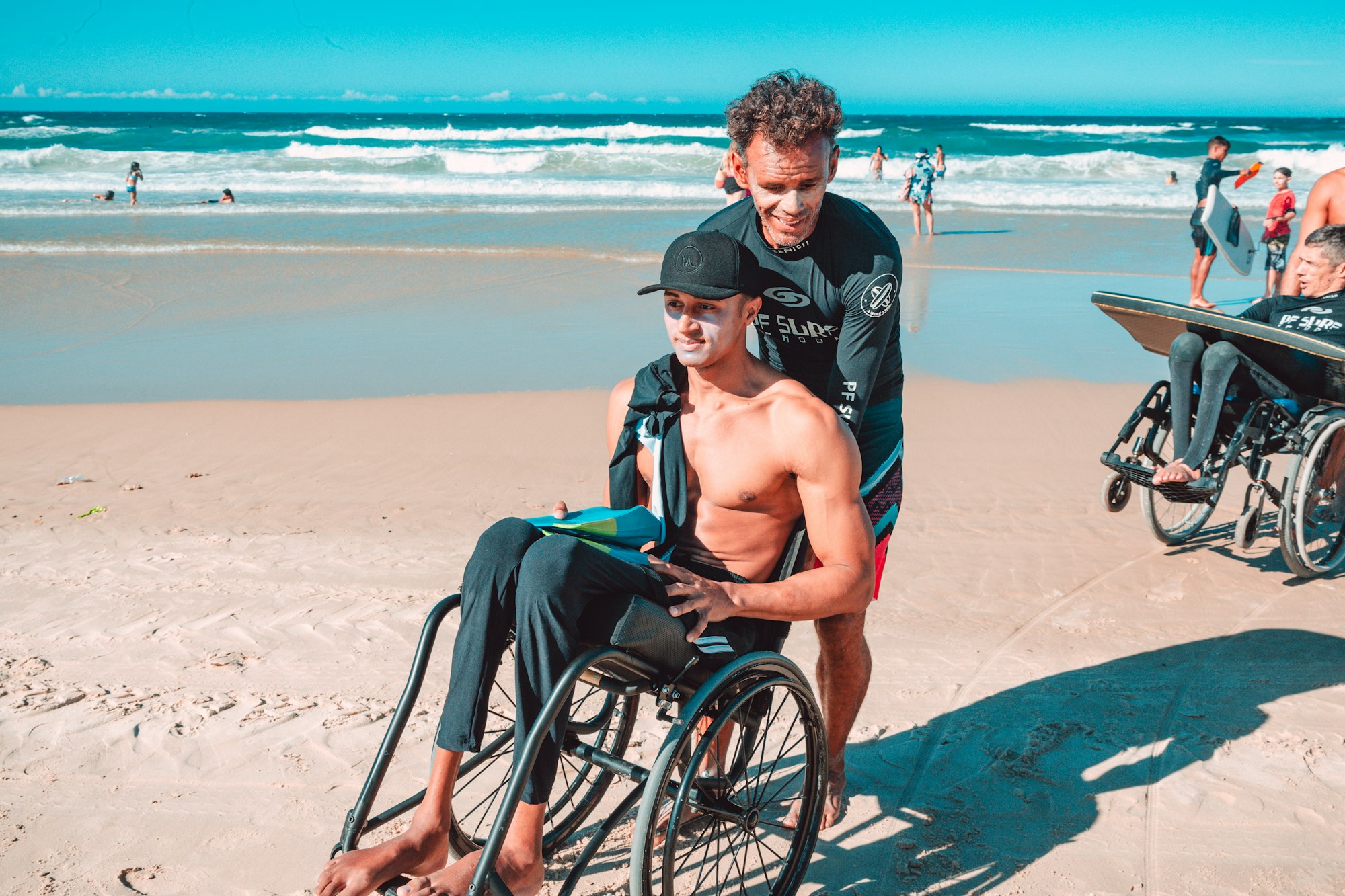How Disability Support encourages self-reliance through smart care planning
How Disability Support encourages self-reliance through smart care planning
Blog Article
The Crucial Connection In Between Disability Solutions and Effective Home Treatment Solutions
The partnership in between impairment solutions and home care options is vital for boosting the lives of people with specials needs. Impairment services give essential resources and assistance. On the other hand, home care services offer personalized assistance in acquainted environments. This partnership advertises self-reliance and social inclusion. Yet, the specifics of how these aspects engage continue to be complex. Recognizing this connection can expose brand-new insights into boosting care for those in requirement. What are the implications for individuals and caregivers alike?
Comprehending Disability Providers: A Review
While many individuals may not fully realize the intricacies of handicap solutions, comprehending their range and value is crucial for fostering inclusivity. Handicap services include a vast array of support systems made to help people with physical, intellectual, or developmental specials needs. These solutions goal to enhance the quality of life, promoting independence and involvement in society. They include instructional programs, work assistance, transportation help, and healthcare services tailored to private needs.Furthermore, these solutions typically entail partnership amongst numerous stakeholders, including federal government firms, charitable companies, and neighborhood groups. This collective method guarantees that people obtain detailed assistance that addresses their special challenges. Awareness of handicap solutions is important, as it urges social acceptance and the removal of stigma. By recognizing the significance of these solutions, areas can produce an extra inclusive setting, eventually benefiting everyone and advertising equivalent chances for individuals with disabilities.
The Duty of Home Treatment in Supporting Individuals With Disabilities
Home treatment plays an important role in improving the lives of people with impairments by giving individualized support in familiar settings. This type of treatment allows people to keep their self-reliance while receiving aid customized to their specific needs. Caretakers not just provide physical assistance, such as help with everyday tasks like bathing and meal prep work, yet also supply psychological motivation and companionship.In enhancement to practical support, home treatment solutions help with social communication, which is basic for mental wellness. By involving people in community tasks or helping with communication with friends and family, caregivers assist combat sensations of seclusion. Home care likewise alleviates the burden on relative, allowing them to focus on their own obligations while ensuring their liked ones get appropriate care (Disability Services Provider). Eventually, home treatment serves as a considerable support group, encouraging people with specials needs to prosper within their very own homes
Tailored Care Plans: Meeting One-of-a-kind Demands
Customized care plans are essential for properly resolving the special requirements of individuals with specials needs. These strategies are created to offer individualized support, considering the specific obstacles and choices of each individual. By conducting extensive evaluations, care service providers can recognize staminas and areas requiring aid, making sure that care is both effective.incorporating and appropriate input from the individual and their member of the family promotes a collective approach, boosting engagement and satisfaction. Customized care strategies might include different services, such as physical therapy, occupational therapy, and individual care aid, all focused on advertising general health. Routine assessments of these treatment strategies are essential to adjust to transforming demands and conditions. This flexibility enables prompt modifications, ensuring that people receive perfect assistance throughout their lives. Eventually, tailored treatment plans function as a structure for supplying quality care that appreciates the self-respect and individuality of each individual.
Enhancing Self-reliance Through Disability Providers
Encouraging people with handicaps to attain better freedom is a key objective of handicap solutions. These solutions give vital sources that help with self-sufficiency and improve the quality of life for those impacted. By offering customized assistance, such as movement training, flexible innovations, and life skills advancement, impairment services make it possible for people to browse everyday difficulties much more effectively.Access to community-based programs and social inclusion campaigns better cultivates self-reliance. With these opportunities, individuals can engage in purposeful tasks, develop connections, and create a sense of belonging. In addition, details and referral solutions aid link people to critical resources, guaranteeing they get the aid required to thrive.Ultimately, enhancing freedom via impairment services not just advantages individuals but also advertises a more inclusive culture. By breaking down obstacles and motivating self-advocacy, these solutions equip people to lead fulfilling lives, contributing to their neighborhoods in beneficial methods.
The Importance of Training for Caretakers
Educating for caretakers is crucial for creating vital skills that straight affect the quality of treatment supplied to individuals with impairments. By enhancing their knowledge and capacities, caregivers can promote caring relationships that promote depend on and understanding. This emphasis on training not only improves service distribution but also enhances the general caregiving experience.
Essential Skill Advancement
Ability growth is vital for caregivers in the special needs solutions and home treatment industries. Appropriate training furnishes caretakers with the basic abilities needed to provide effective support and support to individuals with specials needs. This consists of understanding certain clinical demands, reliable interaction approaches, and the ability to react to different behavior obstacles. In addition, skill advancement boosts caretakers' capability to promote self-reliance in customers, ensuring they can perform everyday activities with self-respect. Recurring training additionally advertises self-confidence and job fulfillment amongst caregivers, reducing turn over prices in the market. By focusing on skill development, organizations can assure that caregivers are well-prepared to meet the varied needs of those they offer, inevitably adding to an extra compassionate and reliable treatment environment.
Enhancing Treatment High Quality
Raising the top quality of care for individuals with specials needs depends upon the comprehensive training provided to caretakers. Trained caregivers possess vital expertise and skills called for to attend to the one-of-a-kind demands of their customers successfully. Comprehensive training programs encompass different facets, such as understanding disability-specific obstacles, efficient communication techniques, and safety and security methods. Additionally, recurring education assurances that caregivers continue to be upgraded on best methods and arising technologies in home treatment - Disability Services. This dedication to training not only improves solution delivery but additionally fosters a feeling of confidence among caretakers, which translates into improved treatment high quality. Eventually, buying caretaker training is essential for creating a setting where people with impairments get the alert, considerate, and effective care they are entitled to
Structure Compassionate Relationships

Constructing an Encouraging Setting in your home

Accessible Home Alterations
Numerous people with disabilities deal with significant obstacles in maneuvering their home atmospheres, making obtainable home modifications crucial for fostering self-reliance and safety. These adjustments can include setting up ramps, widening doorways, and creating barrier-free restrooms, consequently making it possible for easier access throughout the home. Additionally, adding grab bars and non-slip surfaces can considerably lower the risk of falls, advertising an extra safe and secure home. Lifts or stairlifts may likewise be needed for multi-level homes, making certain that all areas are obtainable. By implementing these adjustments, caretakers can aid develop a setting where people can navigate their rooms article source with self-confidence. Eventually, available home alterations play a crucial function in enhancing the top quality of life for those with handicaps, permitting them to prosper in their own homes.
Personalized Care Program
Easily accessible home modifications lay the foundation for an environment where people with disabilities can prosper, but customized assistance is equally vital. Individualized treatment plans play an essential role in resolving the special requirements of each individual. These plans are created through thorough analyses that think about medical needs, personal preferences, and daily regimens. By concentrating on specific strengths and challenges, caretakers can create techniques that promote freedom and improve lifestyle. Regular analyses assure that treatment plans stay efficient and relevant, enabling modifications as demands alter with time. This personalized technique not only boosts the experience of those obtaining care however likewise advertises a feeling of freedom, inevitably adding to a much more helpful and equipping home atmosphere.
Family Participation Strategies
Family involvement is essential in developing a helpful environment for people with disabilities in the house. Involving family participants in care techniques cultivates a feeling of belonging and safety and security. Effective interaction is essential; routine household meetings can assist in conversations regarding the individual's needs and choices. Furthermore, educating member of the family about the specific specials needs can boost understanding and compassion, resulting in much better support. Encouraging engagement in daily activities not only reinforces partnerships but also promotes independence for the individual. It is very important for family members to team up with impairment service companies to develop natural treatment strategies. By actively involving member of the family, a nurturing ambience is grown, inevitably enhancing the quality of life for those with handicaps.
Measuring the Effect of Integrated Treatment Solutions
The performance of integrated care services can substantially affect the quality of life for individuals with specials needs. Gauging this impact needs a complex approach that includes various metrics, consisting of health end results, user fulfillment, and cost-effectiveness. Health end results can be analyzed by tracking renovations in mobility, mental health, and overall well-being, providing concrete evidence of care efficiency. Customer complete satisfaction surveys can record the experiences of individuals and their family members, offering insights right into the perceived quality of care got. In addition, assessing cost-effectiveness you could try here helps to assure that resources are being used successfully, permitting lasting treatment models. By using these measurement techniques, stakeholders can get a complete understanding of just how integrated treatment services positively affect individuals with impairments. Ultimately, this data not just aids in refining existing services yet additionally notifies future policy choices, guaranteeing that treatment remains aligned with the progressing requirements of this population.
Often Asked Concerns
Exactly How Can Families Promote for Better Special Needs Providers and Home Treatment?
Households can advocate for enhanced disability solutions and home treatment by investigating sources, attending neighborhood meetings, engaging with neighborhood representatives, sharing individual experiences, forming assistance groups, and teaming up with organizations committed to special needs legal rights and care renovations.
What Prevail Misunderstandings About Special Needs Solutions and Home Treatment?

Are There Financial Assistance Options for Special Needs Providers and Home Care?
Economic support alternatives for disability services and home treatment consist of government programs, grants, and insurance protection. Resources differ by area, needing people to study local firms and organizations that supply financial support tailored to their requirements.
How Can Technology Improve Home Look After People With Disabilities?
Modern technology can boost home care for individuals with handicaps by offering assistive devices, telehealth solutions, and checking systems. These innovations boost access, advertise self-reliance, and enable caretakers to react extra effectively to the demands of their customers.
What Resources Are Offered for Caretakers of Individuals With Disabilities?
Various sources exist for caregivers of individuals with handicaps, consisting of federal government aid programs, support teams, instructional workshops, on the internet forums, and specialized training. These sources intend to boost caretakers' skills and supply practical and psychological assistance. The connection between impairment solutions and home care solutions is essential for enhancing the lives of people with impairments. Home treatment likewise reduces the worry on household participants, enabling them to concentrate on their own duties while guaranteeing their loved ones obtain appropriate care. By carrying out complete assessments, treatment service providers can recognize strengths and areas requiring help, ensuring that care is both appropriate and effective.Incorporating input from the individual and their family participants cultivates a collaborative technique, enhancing engagement and satisfaction. Tailored treatment strategies may include different services, such as why not find out more physical therapy, job-related therapy, and personal treatment assistance, all aimed at promoting overall well-being. Innovation can enhance home treatment for individuals with impairments by providing assistive tools, telehealth solutions, and keeping an eye on systems.
Report this page